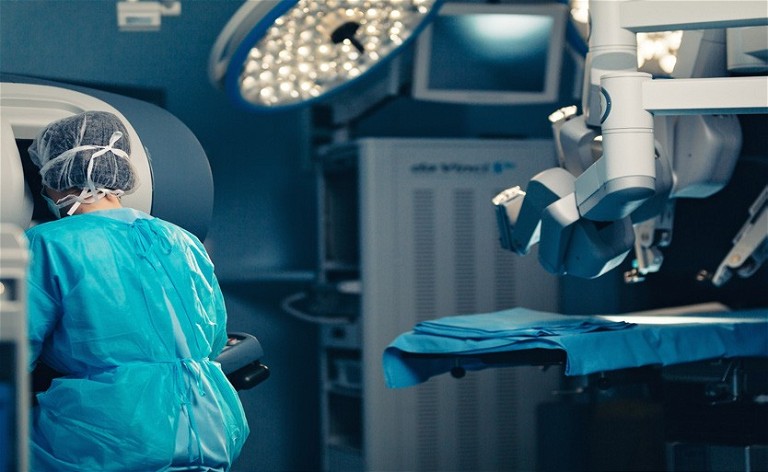Research & Development
J&J plans to submit surgical robot to regulators in 2024
Johnson & Johnson MedTech has announced plans to submit the Ottava robotic surgical system to the US Food and Drug Administration (FDA) for an investigational device exemption (IDE) application in the second half of 2024.
This will allow the company to move its device into US-based clinical trials in 2024.
The Ottava robotic system integrates four robotic arms into a surgical table, able to be stowed away when not needed and easily accessible when needed. The system is intended to be highly flexible and adaptable without interrupting surgery.
If approved, the system will join Johnson & Johnson MedTech’s portfolio of robotic systems, including the Monarch Platform and the Velys Robotic-Assisted Solution.
Hani Abouhalka, company group chairman, Robotics &Digital at Johnson &Johnson MedTech, commented: “Johnson & Johnson was born in surgery with the advent of sterile sutures and we have since helped surgeons improve care for patients by offering transformative technologies across all types of surgery. We believe the future of surgery is personal. Starting with the human impact – the connection between the patient, surgeon and OR staff – we are unlocking what science and technology can do to improve the surgical experience and health outcomes for everyone involved. Ottava is designed to consistently deliver this experience in any OR globally.”

Dr Erik Wilson, chief of Minimally Invasive and Elective General Surgery at the University of Texas Health Science Center in Houston, US, added:
“I want consistency and reliability across the instruments I use. Often today, Iam required to use instruments with variable utility and functionality between traditional laparoscopic procedures and robotic-assisted procedures. Access to the reliable Ethicon laparoscopic instruments on a robotic platform would be useful to operate with less variability regardless of surgical modality.”
Dr Eduardo Parra-Davila, colorectal and general surgeon at the Palm Beach Digital Institute, US, stated: “Today, the majority of ORs are not robotic because they were not built with a robot in mind. The industry needs a system that is adaptable, easy to use in any OR in the world, and maintains space in the OR. As surgeons, we need space to improve the workflow in the OR, increase safety and enable 360-degree patient access so we can perform at the capacity that we would like to. That’s where Ottava comes in. Ottava offers a unique design that incorporates into any OR and allows surgeons to do what they would like to do and know how to do, which is focus on the patient.”